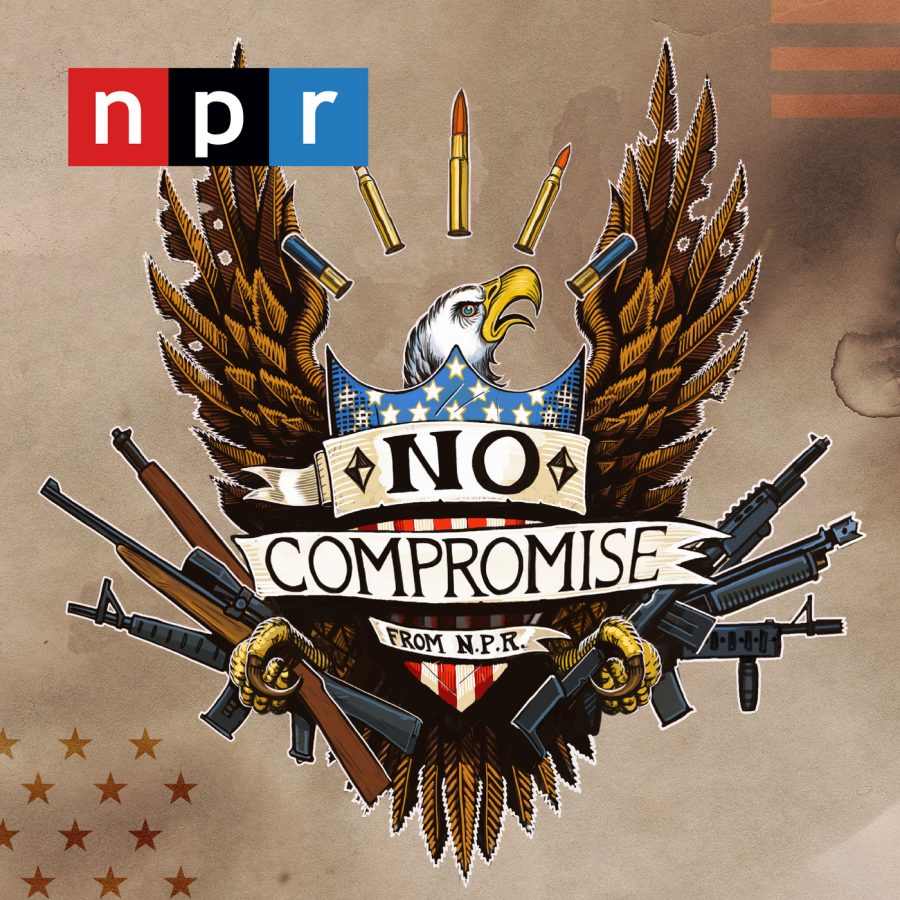When the NRA isn’t conservative enough
No Compromise
Imagine a world where the National Rifle Association is weak on guns, where the right to bear arms is divine law transcribed through the United States Constitution, and no compromise is tolerable.
Well, believe it or not, that’s the world you’re living in right now. At least according to the Dorr brothers and a new wave of gun rights activists profiled in the new NPR podcast “No Compromise.”
In their podcast, reporters Lisa Hagen and Chris Haxel go deep into this new era in American gun politics. Armed with recording equipment, Hagan and Haxel investigate and chart aspects of American gun culture that might not be immediately apparent to those only loosely acquainted with the pro gun movement over the past few decades.
The podcast lands at what could be a crossroads for gun rights activism. The NRA, the lobbying behemoth that has largely shaped the debate around gun ownership in America for the past 40-odd years, is under investigation by the New York attorney general, who is seeking to dissolve the organization over alleged violations of its nonprofit status. The leadership of the NRA is also under fire. The New York attorney general has accused the leadership of significant misappropriation of funds, and at least some of their own members are taking high umbrage at what they see as profligate spending by executives. This is optimized, as reported in “No Compromise,” by NRA CEO Wayne LaPierre’s $39,000 outlay in a single day at a Beverly Hills menswear boutique.
But the rift does not end there. The so called no-compromise groups say that the NRA is not fighting strongly enough for gun rights. To these activists, the NRA has allowed unacceptable levels of gun regulation to take place under its watch.
At the center of “No Compromise” are the Dorr brothers, their hardline beliefs and their web of gun rights organizations. As Haxel says at one point, the Dorr brothers are running their network with two weapons in hand: guns and Facebook. Guns are the subject, and Facebook is the medium they use to rally supporters and raise money. Though where exactly this money is going and exactly what end the brothers are pursuing is up for discussion. In the form of this podcast, of course.
The first four episodes look at four discrete aspects of the brothers and the no-compromise movement. The first episode focuses on the brothers’ professed views and the organizations they have created. The second looks at their following, their followers, and the means the brothers use to organize – namely Facebook Live. The third episode deals with how fellow gun rights activists and Republican legislators view the brothers. Some of these charge that the Dorr’s are liars and scam artists, riling up their base for donation money while taking credit for legislative victories they may have had nothing to do with. The fourth episode tries to dig into the Dorr’s finances but ends up looking at the Christian Reconstructionist religion of the Dorr brothers’ father and whether that is a motivating factor for them as well.
It becomes apparent that this particular gun rights debate is not just about guns. But what exactly it is about is not entirely clear. What is clear is that themes of religion, the role of government and what kind of society people want to live in are key.
The podcast and other reporting on today’s gun rights and militia movements turn up many paradoxical threads. There is a strenuous defense of the constitution – the Second Amendment in particular – but at the same time, a deep distrust of the government: the very thing the Constitution charters into existence. There are hard line pro-life stances, as well as a strongly articulated willingness to use, as the euphemism goes, “deadly force” to protect oneself and one’s family. There is a strident de-
fense of “freedom,” but if the Reconstructionist thread holds up, there is also a movement pushing for a theocratic government.
It is worth noting here that this “new wave” of the gun rights movement is not without antecedent. People in these groups often point to the deadly fiasco at Waco, Texas, as an example of why they believe what they do about the government. This puts them in extensive and sometimes troubling company; the same incident inspired the militia movement of the 1990s and the Oklahoma City bomber. These are dark threads in American culture.
Though not produced to the level of public radio rock star programming such as “This American Life” and “Radiolab,” this production has a solid footing on the second tier of today’s podcasts, and I mean that as a good thing. It has a lot of strong reporting, and for the most part, it’s well written and edited. Using a heavy metal motif and astute though relatively conventional music choices, the podcast’s creators provide good definition and drive throughout the episodes released so far. I, for one, look forward to listening to where this series goes.






